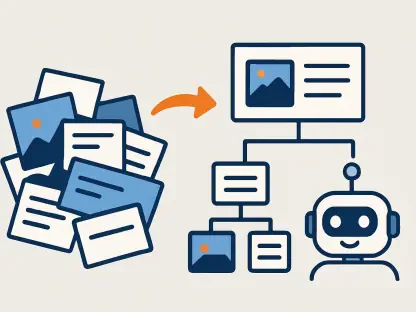Imagine a world where banking is no longer tethered to long queues or distant branches, but instead fits seamlessly into the palm of your hand. In Nigeria, this vision is rapidly becoming reality as digital banking transforms how millions manage their finances. Ecobank Nigeria’s upgraded mobile banking app stands at the forefront of this revolution, promising enhanced accessibility and cutting-edge features for a diverse user base. This review delves into the app’s latest enhancements, evaluating its performance, usability, and impact on financial inclusion within a competitive digital landscape.
Overview of the Upgraded App
Ecobank Nigeria has rolled out a significant update to its mobile banking platform, aiming to redefine customer engagement through technology. Available on both Google Play and the Apple App Store, the app targets a wide range of users, from tech-savvy urban dwellers to those in remote areas with limited access to traditional banking. The core objective is to streamline financial interactions while addressing the growing demand for secure and efficient digital solutions in Nigeria’s evolving market.
This upgrade aligns with the broader shift toward mobile-first banking ecosystems, where apps serve as the primary interface for transactions and account management. By prioritizing user convenience, Ecobank seeks to strengthen its position in a sector increasingly dominated by digital innovation. The focus on accessibility also reflects a strategic intent to bridge gaps in financial service delivery across varied demographics.
Key Features and Performance Analysis
Enhanced Security with Facial Recognition
One of the standout features of the updated app is its advanced facial recognition technology for secure access. This biometric tool authenticates users by scanning facial features, significantly reducing the risk of unauthorized entry. In an era where mobile fraud poses a constant threat, such measures are critical for building trust among customers wary of digital vulnerabilities.
The implementation appears robust, with quick recognition times and minimal errors during testing phases. However, its effectiveness depends on device compatibility and optimal lighting conditions, which could pose challenges for some users. Despite these potential hiccups, the feature marks a progressive step in safeguarding sensitive financial data against evolving cyber risks.
Cardless Onboarding and Account Control
Another notable enhancement is the cardless onboarding process, allowing new users to open accounts or reactivate dormant ones without stepping into a branch. This functionality removes traditional barriers, such as the need for physical documentation, making banking more accessible to underserved populations. The process is intuitive, guiding users through a few simple steps to get started.
Beyond onboarding, the app offers comprehensive account management tools. Users can activate or block debit and credit cards, reset PINs, and monitor transactions in real time from a single dashboard. These capabilities empower individuals to maintain control over their finances with minimal friction, catering to a growing preference for self-service options in banking.
Efficient Transactions and Utility Tools
The app excels in facilitating seamless transactions, including instant transfers, bill payments, and airtime top-ups. Features like QR code payments add a layer of convenience for in-person transactions, while live foreign exchange rate displays provide transparency for cross-border dealings. Such tools are invaluable for users engaged in international trade or remittances, offering clarity on costs in fluctuating markets.
Performance-wise, transactions execute swiftly with minimal lag, even during peak usage periods. The integration of these utilities into a cohesive platform ensures that users can handle diverse financial needs without switching between multiple apps. This consolidation enhances efficiency, particularly for small business owners managing tight schedules.
User Interface: Speed and Simplicity Redefined
A revamped user interface prioritizes speed and ease of use, addressing common pain points in mobile banking apps. Navigation is straightforward, with key functions accessible within a couple of taps, catering to both seasoned users and those less familiar with technology. The design emphasizes clarity, using intuitive icons and minimal clutter to guide interactions.
Testing revealed that the interface significantly reduces the learning curve for new users, a crucial factor in expanding adoption across varied age groups. While occasional minor glitches in menu transitions were noted, they did not detract from the overall fluidity. This focus on usability underscores Ecobank’s commitment to delivering a frictionless digital experience.
Industry Context and Strategic Positioning
Nigeria’s banking sector is undergoing a profound transformation, with mobile platforms becoming central to customer engagement. The rapid adoption of fintech solutions has pushed traditional banks to innovate, integrating features like biometric authentication and self-service tools. Ecobank’s latest app update positions it alongside competitors such as Access Bank, GTCO, and UBA, all of whom are vying for dominance in this digital race.
A key differentiator for Ecobank lies in its emphasis on reaching semi-urban and rural areas, where branch networks are sparse. By leveraging mobile technology to onboard unbanked individuals, the bank addresses a critical gap in financial inclusion. This strategic focus could yield long-term loyalty in markets often overlooked by larger players.
The competitive landscape also highlights the importance of continuous improvement. As other banks roll out similar enhancements, Ecobank must maintain momentum through regular updates and responsive customer support. Staying ahead will require balancing innovation with reliability to meet rising consumer expectations over the coming years.
Real-World Impact Across User Segments
The app’s practical applications span a wide spectrum of users, from urban professionals seeking efficiency to rural residents accessing banking for the first time. In cities, features like instant transfers and QR payments simplify daily financial tasks, saving time for busy individuals. The ability to manage accounts on the go resonates strongly with a fast-paced lifestyle.
In semi-urban regions, the cardless onboarding feature proves transformative, enabling people with limited access to physical branches to join the formal banking system. For instance, small-scale traders can now handle cross-border payments with real-time exchange rate insights, fostering economic activity. Such use cases demonstrate the app’s potential to drive inclusivity at a grassroots level.
Unique scenarios further illustrate its value, such as reducing documentation hurdles for marginalized groups. By minimizing bureaucratic obstacles, the platform opens doors for those previously excluded from financial services. This adaptability across contexts underscores the app’s relevance in addressing diverse societal needs.
Security Challenges and Mitigation Efforts
Despite its advancements, the app faces significant challenges related to mobile fraud, a pressing concern in digital banking. Ecobank has integrated biometric verification and encryption protocols to counter threats like identity theft and unauthorized access. These measures provide a solid foundation for protecting user data in a high-risk environment.
However, technology alone cannot ensure safety without user awareness. Many customers remain vulnerable due to limited knowledge of phishing scams or secure practices. Ecobank must prioritize educational initiatives to empower users with the tools to safeguard their accounts, complementing the app’s built-in defenses.
Market barriers, such as inconsistent internet connectivity in remote areas, also hinder widespread adoption. Technical issues, though rare, can disrupt service during critical moments. Addressing these obstacles will require ongoing investment in infrastructure and proactive solutions to maintain user confidence in the platform.
Future Prospects in Digital Banking
Looking ahead, Ecobank’s mobile banking app holds substantial potential to shape the trajectory of digital finance in Nigeria. Sustained innovation, such as integrating artificial intelligence for personalized services, could further elevate its standing. Adapting to emerging trends will be key to retaining a competitive edge in a dynamic market.
Customer feedback will play a pivotal role in refining future updates, ensuring the app evolves in line with user needs. Expanding features to support micro-investments or savings plans could attract younger demographics seeking holistic financial tools. Such enhancements would deepen engagement over time.
The long-term impact on financial inclusion appears promising, particularly if Ecobank continues targeting underserved regions. Strengthening partnerships with telecom providers to improve connectivity could amplify reach. These efforts, if executed well, might position the bank as a leader in transforming how Nigerians interact with financial services.
Final Verdict and Next Steps
Reflecting on the evaluation, Ecobank’s mobile banking app delivered a strong performance with its focus on security, usability, and accessibility. The integration of facial recognition and cardless onboarding stood out as game-changers, while the streamlined interface enhanced user satisfaction. Despite minor technical hiccups, the platform proved reliable across various scenarios.
Looking beyond the current state, the path forward demands a dual focus on bolstering security education and expanding infrastructure support. Ecobank needs to invest in campaigns that teach users how to navigate digital risks effectively. Simultaneously, collaborating with stakeholders to improve network reliability in remote areas could unlock greater adoption.
Ultimately, the app sets a high benchmark for what mobile banking can achieve in bridging financial gaps. The next steps involve harnessing user insights to drive iterative improvements, ensuring the platform remains agile in a fast-evolving sector. This commitment to adaptability is essential for sustaining impact in Nigeria’s digital banking landscape.









